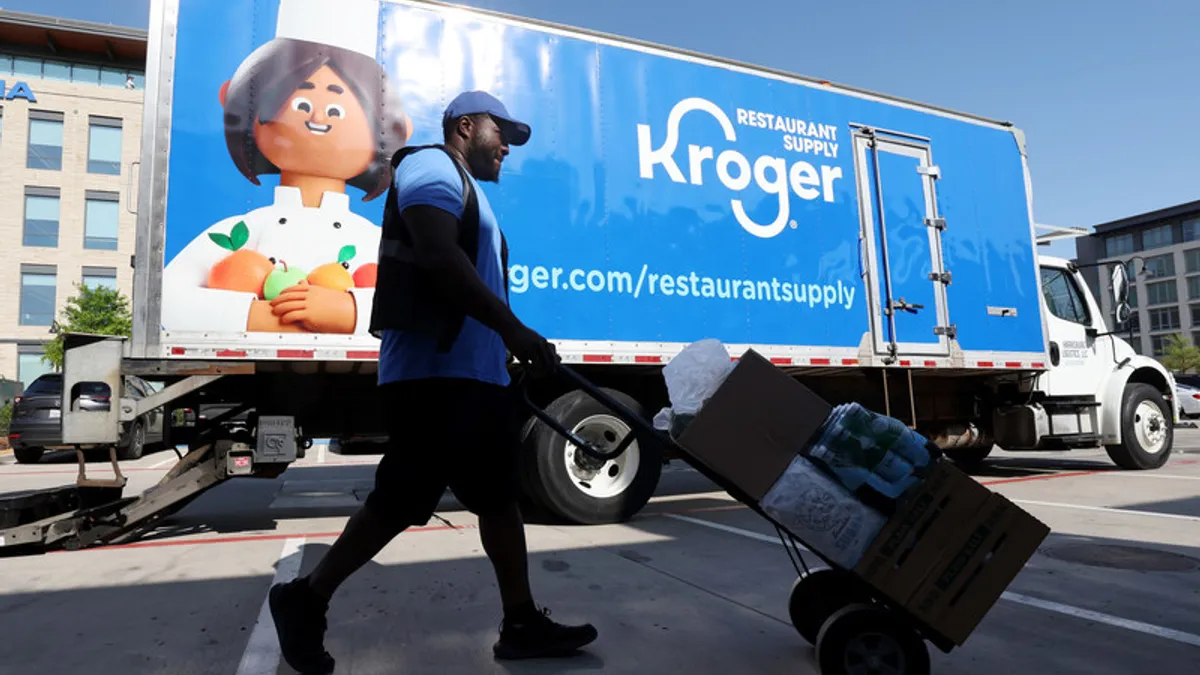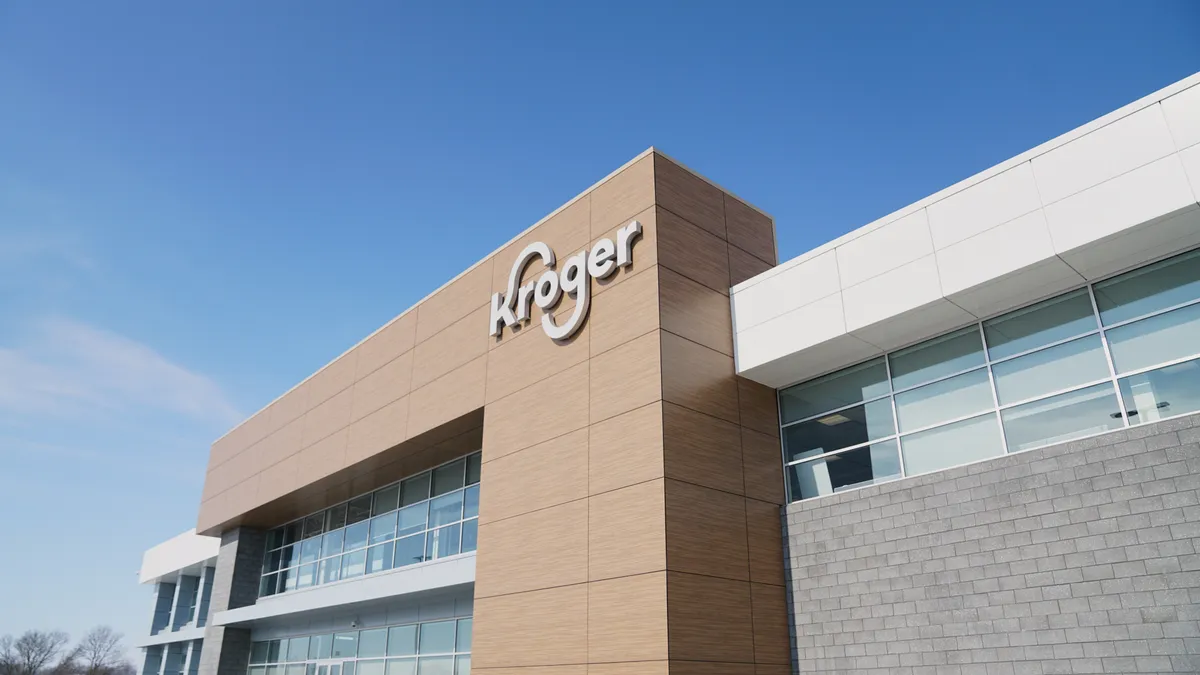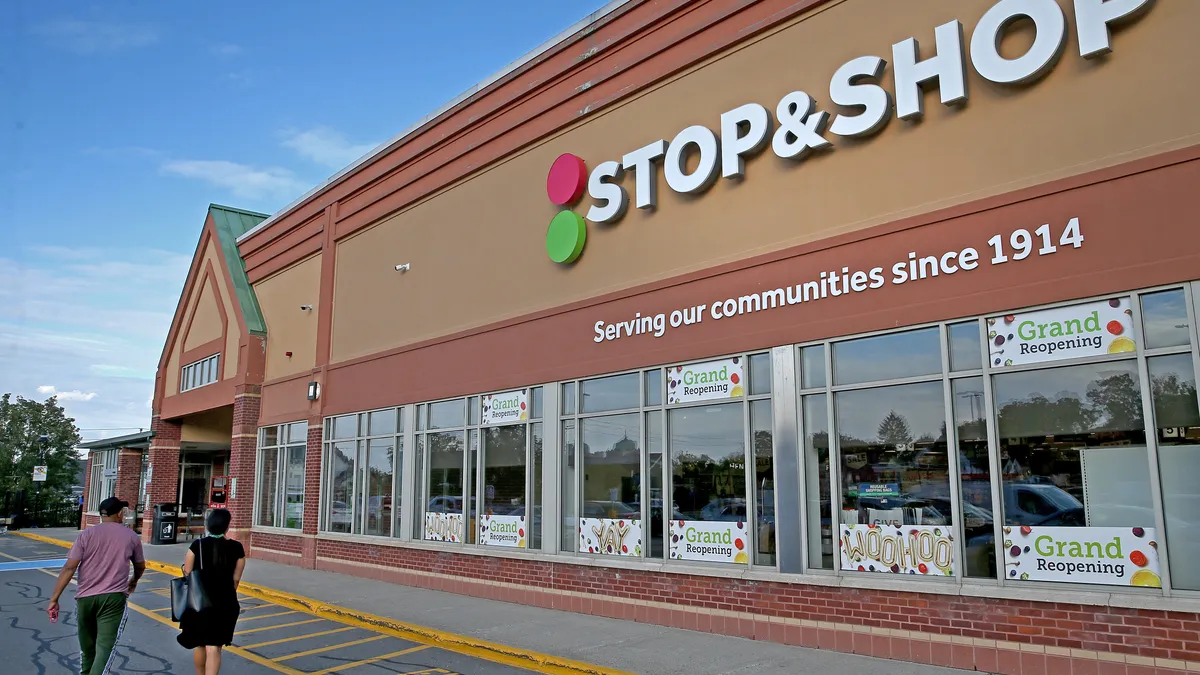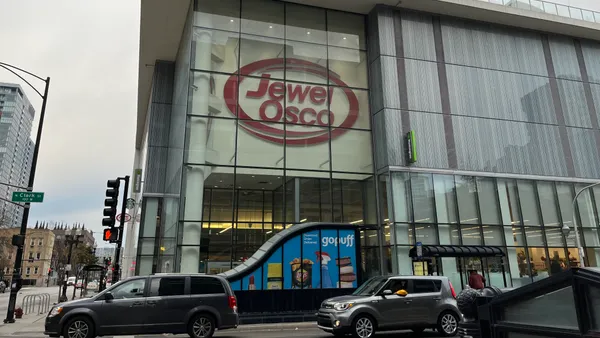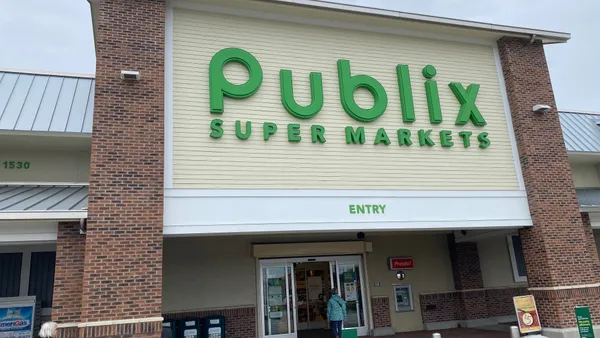Dive Brief:
- Kroger recorded $33.9 billion in sales during the second quarter, an amount that was down 2% compared with the same period in 2022. During the quarter, the company recorded an operating loss of $479 million.
- The grocer’s identical-store sales excluding fuel increased 1% in Q2 compared with the 5.8% increase recorded during Q2 last year, while earnings per share came in at -$0.25, down from $1 a year ago. Kroger’s termination of its contract with pharmacy benefits manager Express Scripts depressed its Q2 same-store sales, which the grocer said would otherwise have grown 2.6%.
- Kroger announced a $1.4 billion charge in Q2, which translates to a $1.54 loss per share, related to a nationwide opioid settlement that will involve payments spanning 11 years. The charge drove down Kroger’s earnings during the quarter.
Dive Insight:
Kroger announced Friday it has reached a settlement for the majority of opioid claims that have been or could be brought against the company. The company has agreed to pay up to $1.2 billion to states and subdivisions and $36 million to Native American tribes for abatement efforts — both to be paid over 11 years in equal installments — and approximately $177 million to cover attorneys' fees and costs.
Kroger said the agreement is an “important milestone” in the company's efforts to resolve the pending opioid litigation and support abatement measures, noting that the settlement and payment terms do not impact its ability to complete its proposed merger with Albertsons.
Kroger’s Q2 results, meanwhile, were at the low end of the company’s internal expectations as it saw food-at-home inflation decelerate faster than expected, Kroger CFO Gary Millerchip told investors on a Friday call.
“Underlying operating results excluding fuel improved versus prior year due to strong gross margin management, tight cost controls and continued growth in alternative profit businesses,” Millerchip told investors on the call.
With the impact of fuel excluded, Kroger’s sales were up 1.1% during Q2, according to the company.
Kroger’s digital business, including growth in its delivery and pickup channels, was a bright spot. Digital sales increased 12% in Q2 and Kroger’s digitally engaged households grew by approximately 1.2 million compared to last year, per the company’s press release. Kroger said that it saw delivery sales grow by 24% year over year, mainly due to its delivery solutions including Kroger Boost and network of customer fulfillment centers.
Millerchip said that its existing CFC network saw “a continued ramp in volume” during Q2.
In response to an investor question about the status of Kroger’s fulfillment network with Ocado, Kroger CEO Rodney McMullen said that Kroger doesn’t plan to focus on additional facilities “until we make sure that we have a clear path on the ones we have.”
“Right now all the energy is focused on the ones we have and making sure that those are where we want them to be, where they need to be and on a sustainable basis,” McMullen said about the Ocado sheds, noting that the sheds’ repurchasing rates and NPS scores “remain very high.”
Millerchip also said that Kroger saw strong private brands performance in Q2, along with lower supply chain costs and sourcing benefits. Tailwinds were partially offset by shrink, including rising theft and organized retail crime, along with investments in promotional pricing, he said.
“We are implementing initiatives to mitigate the financial impact including increased security and new technology solutions, but would expect shrink trends will continue to be a challenge for the remainder of the year,” Millerchip said.
During Q2, Kroger also accelerated its Fresh Produce Initiative and now has 1,940 stores certified. That expansion is helping to generate higher same-store sales at the certified locations, the company said.
Millerchip said Kroger remains on track to deliver its sixth consecutive year of $1 billion in cost savings, noting that its cost-saving initiatives include improving store productivity by expanding shelf-ready packaging and introducing data-driven enhancements to associates’ mobile devices that optimize the restocking process.
Many investor questions during the call focused on Kroger and Albertsons’ divestiture plan, which was announced Friday morning prior to the earnings call. That plan, which aims to satisfy regulators reviewing their proposed mega-merger, includes selling 413 stores, eight distribution centers and three store banners to C&S Wholesale Grocers.
McMullen told investors that Kroger “conducted a robust and thoughtful diligence process” and reviewed dozens of potential buyers “spanning from private to public, to union to non union domestic and international players” for the divested stores.



